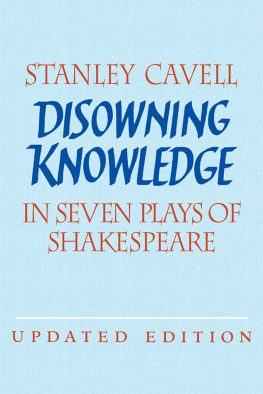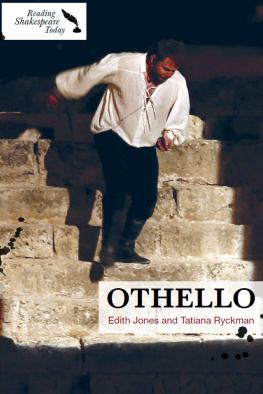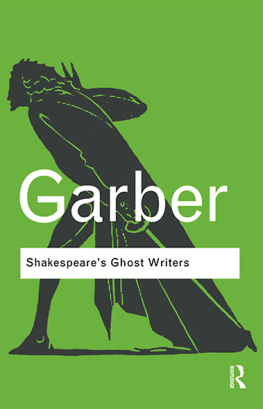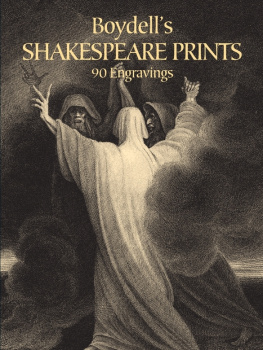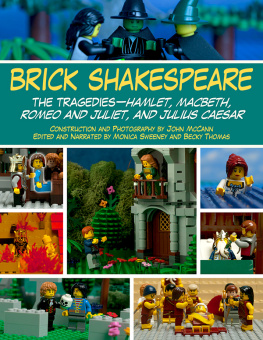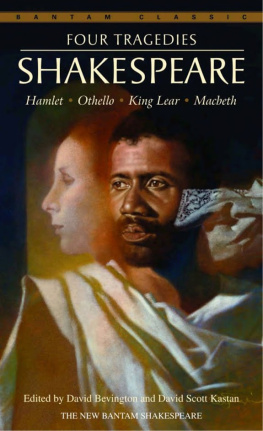Disowning Knowledge
Reissued with a new essay on Macbeth this famous collection of essays on Shakespeares tragedies considers these plays as responses to the crisis of knowledge and the emergence of modern skepticism provoked by the new science of the late 16th and early 17th centuries.
Stanley Cavell is the Walter M. Cabot Professor of Aesthetics and the Theory of Value at Harvard University, Emeritus.
Disowning Knowledge
In Seven Plays of Shakespeare
Updated Edition
STANLEY CAVELL
Harvard University

CAMBRIDGE UNIVERSITY PRESS
Cambridge, New York, Melbourne, Madrid, Cape Town, Singapore, So Paulo
Cambridge University Press
32 Avenue of the Americas, New York, NY 10013-2473, USA
www.cambridge.org
Information on this title: www.cambridge.org/9780521821896
Cambridge University Press 1987
Updated edition Stanley Cavell 2003
This publication is in copyright. Subject to statutory exception and to the provisions of relevant collective licensing agreements, no reproduction of any part may take place without the written permission of Cambridge University Press.
First published 2003
A catalog record for this publication is available from the British Library.
Library of Congress Cataloging in Publication Data
Cavell, Stanley, 1926
Disowning knowledge in seven plays of Shakespeare / Stanley Cavell. Updated ed.
p. cm.
Rev. ed. of: Disowning knowledge in six plays of Shakespeare.
Includes bibliographical references (p.) and index.
ISBN 0-521-82189-4 ISBN 0-521-52920-4 (pbk.)
1. Shakespeare, William, 1564-1616 -Tragedies. 2. Shakespeare, William, 1564-1616 Philosophy. 3. Knowledge, Theory of, in literature. 4. Skepticism in literature. 5. Tragedy. I. Cavell, Stanley, 1926 Disowning knowledge in six plays of Shakespeare. I. Title.
PR2983.C38 2003
822.33dc21 2002034802
ISBN 978-0-521-82189-6 hardback
ISBN 978-0-521-52920-4 paperback
Transferred to digital printing 2007
Cambridge University Press has no responsibility for the persistence or accuracy of URLs for external or third-party Internet Web sites referred to in this publication and does not guarantee that any content on such Web sites is, or will remain, accurate or appropriate.
To David Franklin Cavell
Preface and Acknowledgments
Suppose that philosophy is pursued either according to the myth or wish that one may know everything, or else according to the myth or wish that one may know nothing defenses against the philosophical defeat of claiming to possess some privileged access to or measure of truth. In our century the names of Heidegger and of Wittgenstein are reasonably clear instances, respectively, of these modes of defense. By instinct and training my mode has been that of careful ignorance, but nowhere more than in my reading of Shakespeare have I been more aware of the liabilities and hazards of this course, hence nowhere more needful of timely aid and encouragement.
From the first of these essays I have counted on the friendship and the work of Michael Fried, of John Harbison, and of the late Seymour Shifrin; especially in recent years on that of Janet Adelman, Jay Cantor, Burton Dreben, Marc Shell, and Judith Shklar. I think also with gratitude of the vivid lift in particular exchanges with Paul Alpers, David Bevington, Carol Neely, Norman Rabkin, Amelie Rorty, Edward Snow, Meredith Skura, and Richard Wheeler. And throughout there have been the students from those in the General Education course at Harvard for which the material on King Lear was prepared, to those in the two discussion seminars I have offered on the other plays represented in what follows here, to those generations of philosophy graduate students on the third floor of Emerson Hall willing to listen and to question as I sought to follow out my irregular sense of philosophys bearing toward and from Shakespeare, conversations many of which I am blessed to know continue now years later.
In the months since the present work was sent off to the publisher, I have, as part of a third Shakespeare discussion seminar, begun studying recent criticism of Shakespeare composed from the perspectives of the new historicism or cultural materialism, and from that of deconstruction, and from that of feminism. Much of it seems to me to bear on what appears here, but for me to say how is something for other occasions. I had, in any case, for my part, to come to feel that this sequence of readings or measures has been accomplishing the staking out of a certain reasonably early and reasonably consistent perspective; otherwise the bearing on it of others would have no particular point.
That there is some such perspective whose staking out it was for me to accomplish I glimpsed consciously as a result of an exchange whose special role for me I wish to record explicitly. It took the form of a telephone call to me during the spring (as I recall) of the year I was in residence at the Center for the Humanities at Wesleyan University, so in 19701, from C. L. Barber in Santa Cruz, California. He said that students of his had been recommending that he read my essay on King Lear and that having now done so he wanted to invite me to share a symposium with him (I no longer remember for what institution) in which we each would undertake to say something about the complete body of Shakespeares work and then to compare this achievement with that of another writer (I gathered in any other language and I imagined in any other mode). It seemed to me a remarkable stroke simply to recognize that the time had come again in which a project of that character could be well conceived, or reconceived. I said so, moved as much by the tone of the invitation and by the idea of it as by the fact that they came from a scholar I had not then met but whose book Shakespeares Festive Comedy I had, with so many others, profited from. But I went on to decline the invitation, arguing that preparation for such an undertaking would require from me, at a guess, about ten years. More than half again that span has now passed, and my sequence of essays or measures takes up no more than a sixth of the corpus of the plays; but however incomplete the extent and limited in scope the accomplishment, the idea in it of Shakespeare as a writer of human consistency, developing a particular problematic in and of a world, and in and of a language, shared with and faced against other writers, is part of whatever good there is in it, and that idea began to become active for me from the time of Barbers invitation.
After the Introduction, the essays to follow appear, with one reversal I shall note, in the order of their writing. That on King Lear was completed in 1967 and appeared as the concluding essay of Must We Mean What We Say? (first published in 1969, reprinted in 1976 by Cambridge University Press). The pages on Othello conclude The Claim of Reason (published in 1979 by Oxford University Press). The paper on Coriolanus was prepared at the invitation of Janet Adelman for the Shakespeare Congress held at Stratford-upon-Avon in the summer of 1981. I was unable in the event to attend that Congress, but two subsequent invitations gave me opportunities to present the paper and to profit from its discussion. The first, at the invitation of Philip Holzman, was to read a paper to the RapaportKlein Study Group at the Austen Riggs Center in Stockbridge, Massachusetts, in June 1982, and the second, in the following September, to participate in a colloquium on Coriolanus at The Humanities Institute during its meetings at Stanford University. The paper first appeared in
Next page
